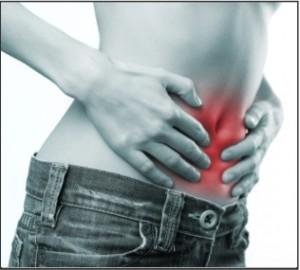
- Health advice
- Nov 27, 2013
Heartburn and indigestion and other upper digestive complaints affect approximately 20% of the population. In more severe cases quality of life is often affected . Untreated these conditions can lead to Gastro-oesophageal reflux disease (GORD). GORD has a prevalence of 10-20% in the Western World. It is defined as a recurrent reflux of gastric contents into the oesophagus.
Complaints of the upper GIT (gastro-intestinal tract) are all a result of the same processes. Obesity, overeating and excessive carbohydrates cause gastric distension, pressure and sphincter relaxation. Alcohol, dysbiosis (bacterial imbalance), gluten intolerance, stress and poor coping skills can also cause leaky gut and breakdown the mucous barrier in your stomach. Helicobacter pylori bacterium is linked to many gastrointestinal disturbances.
What are the most common risk factors that contribute to GORD
- Dietary factors that disrupt gastric emptying.
- Eating patterns such as eating too fast, eating meals that are too large, drinking fluids with meals and eating too close to bedtime.
- Overweight and obesity is associated with reflux symptoms.
- Stress.
- Smoking.
- Genetic disposition.
- Medications – including calcium channel blockers, nitrates, theophylline, meperidone, diazepam, sildenafil and barbiturates.
What foods should I avoid?
As well as following appropriate dietary recommendations and changes, some common irritants should be avoided, especially where GORD has been identified.- Alcohol
- Caffeine
- Chocolate
- Onions
- Garlic
- Fatty and fried foods
- Citrus foods
- Spicy foods
- Tomato-based foods
- Carbonated drinks
- Foods containing mint flavourings
How are these conditions treated with medications?
A recent survey found that 16.9% of the population take medications for reflux and other gastric conditions. The problem with this is that, taken long term, they affect the lining of the stomach and upper intestine, reducing natural acid levels. Absorption of vitamins and minerals becomes compromised.How can natural therapies help?
Natural therapy treatment aims to reduce the symptoms while avoiding the side effects often caused by other medications. If you are already on medications, the natural therapist will often work with your doctor to avoid any unwanted side effects from withdrawal of the medications. Having determined the causative factors and symptoms a treatment plan including dietary modifications, lifestyle considerations, herbal medicine and exercise will be individually tailored. Treatment plans will aim to relieve heartburn symptoms, decrease oesophageal inflammation and promote healing and tone the oesophageal sphincter. Individual support for weight loss, stop smoking programs as well as improving the immune system and nervous system are also considered. If left untreated GORD may lead to oesophageal cancer.Article by Naturopath Janne Ramsay
Related Articles
Recently Viewed
- ${ variant.price | currencyFromCents } | ${ variant.title } ${ variant.price | currency } | ${ variant.title }
Sale


RRP
${ (hoverVariant ? hoverVariant.compare_at_price : product.compare_at_price) | currencyFromCents }
${ (hoverVariant ? hoverVariant.compare_at_price : product.compare_at_price) | currency }
${ hoverVariant.compare_at_price }
${ heroVariant.compare_at_price }
${ product.compare_at_price_min | currency }
Save
%
${ (hoverVariant ? hoverVariant.price : product.price) | currencyFromCents }
${ (hoverVariant ? hoverVariant.price : product.price) | currency }
${ hoverVariant.price }
${ heroVariant.price }
${ product.price_min | currency }
Auto delivery















